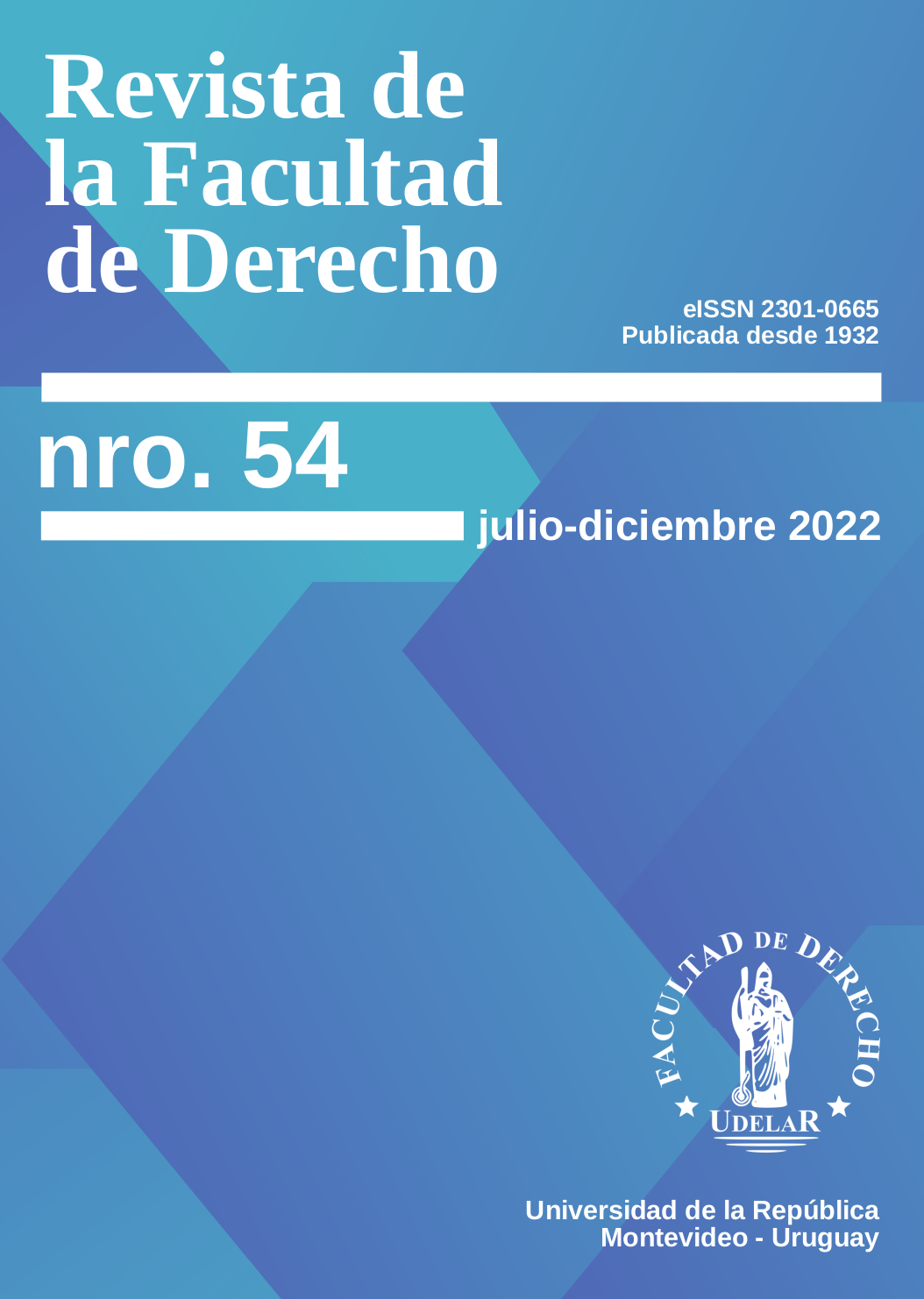Difficult cases of dependency relationship according to the dogmatics and the jurisprudence of the contentious administrative court
Abstract
When analyzing the existence of a dependency relationship for the purposes of taxation for special social security contributions, there are difficult cases, in which a certain lack of correspondence is observed between the legal forms adopted by individuals and the underlying economic reality. Regarding university professionals, art. 105 of Law 18.083 establishes that there will be no dependency relationship "when the free will of the parties so determines." In our understanding,
the social reality indicates that in the vast majority of cases, when the professional is hired by a company that provides professional services, they are not effectively on equal terms to negotiate the status of dependent or not dependent on their activity , so if in the same general conditions for a dependent are met and should be treated from the legal point of view, under penalty of affecting the principle of equality. From the study of the jurisprudence of the Contentious Administrative Court, it appears that in difficult cases, there is a delicate weighting of the various subordination indices applicable to the case, however, there are some that have a greater relative weight, which will be analyzed in this paper.
Downloads
References
Barreto Ghione, H. (2007). La determinación de la relación de trabajo en la recomendación 198 y el fin del discurso único de la subordinación jurídica, Revista de Derecho Laboral (225), 81-98.
Ermida Uriarte, O. (1983). Concepto de subordinación o dependencia en el Derecho Laboral y de la Seguridad Social, Revista del Instituto Uruguayo de Estudios Tributarios, (52), 6-7.
Grzetich, A. (1996). Tributación en seguridad social y desregulación laboral, Revista de Derecho Laboral (182-183), 536 – 537.
Hart, H.L.A (2011). El concepto de Derecho (3 Ed. reimpresión), Abeledo Perrot, 153.
Hernández Álvarez, O. y Ermida Uriarte, O. (2008). Crítica de la subordinación, La Ley ,1513-1541.
Kelsen, H. (2009). Teoría Pura del Derecho, 4° Ed. 9° reimpresión, Eudeba, 133.
Nino, C.S. (2003). Introducción al análisis del Derecho, 11° Ed., Ariel, 265.
Pérez del Castillo, S. (2010). La subsistencia de las empresas unipersonales, XXI Jornadas Uruguayas de Derecho del Trabajo y Seguridad Social, 48.
Pérez Novaro, C. (1996). Aspectos tributarios de la Ley 16.713, Revista del Instituto Uruguayo de Estudios Tributarios (131), 124-125.
Pereira Campos S. y Gutiérrez A. (2009). Leading cases del TCA sobre contratación de profesionales universitarios (médicos) por empresas de emergencia médico móvil, Jurisprudencia anotada, La Ley Uruguay (112), 965.
Plá Rodríguez (2000). Curso de Derecho laboral, Tomo I Vol. I, Ed. Idea, 101.
Ramos Olivera, J. (2000). Manual de aportes a la Seguridad Social. Ed. BDF, 25.
Raso Delgue, J. (2009). La contratación atípica del trabajo. Ed. AMF, 71, 78-95.
Raso Delgue, J. (2010). Empresas unipersonales, derogación o modificación, XXI Jornadas Uruguayas de Derecho del Trabajo y la Seguridad Social, 121.
Rivas, D. (2000). El trabajo autónomo en Cuarenta y dos estudios sobre la descentralización empresarial y el derecho del trabajo, FCU, 240-242.
Rivas, D., La voluntad de las partes en la elección de la forma jurídica del trabajo y en la calificación del contrato de trabajo, LJU, Tomo 111.
Copyright (c) 2022 Omar Tuvi Helguera

This work is licensed under a Creative Commons Attribution 4.0 International License.
This journal provides open access to its content, based on the principle that providing the public with free access to research helps a greater global exchange of knowledge
Revista de la Facultad de Derecho. Creative Commons Reconocimiento 4.0 Internacional License.










